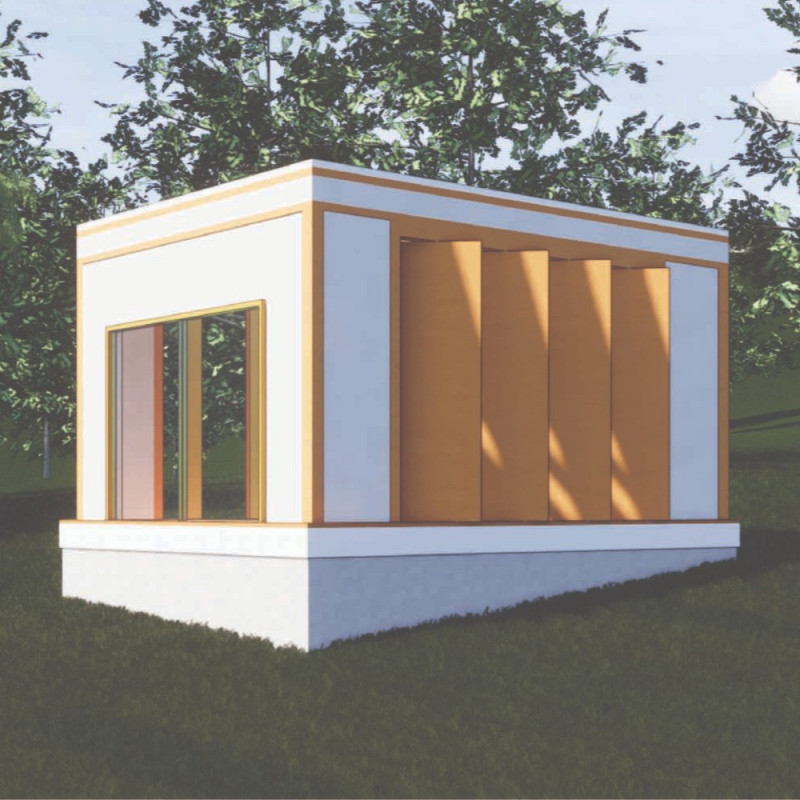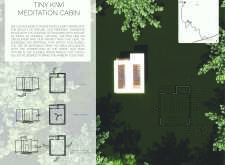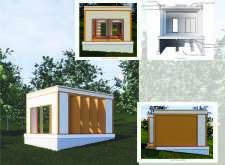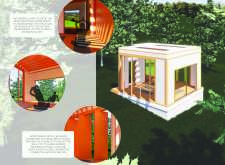5 key facts about this project
Spatially, the cabin is organized into areas that facilitate both meditation and storage, optimizing the limited space while maintaining an uncluttered aesthetic. The innovative use of large windows allows ample daylight to enter the space, providing views of the natural surroundings and fostering a greater connection to the environment. The incorporation of adjustable wood panels further enhances user experience, enabling customization of light and airflow based on individual preferences and weather conditions.
Sustainable design is at the forefront of this project. The materials selected for construction include wood panels, concrete footing, insulation, and glass windows, all of which contribute to the cabin's durability and energy efficiency. The wood panels employed are flexible, mounted on 360-degree hinges that allow for easy adjustments, illustrating a unique approach to user interaction within the architectural context. This flexibility not only optimizes functionality but also embodies a response to the dynamic nature of the environment.
Another distinctive aspect of the Tiny Kiwi Meditation Cabin is its emphasis on modularity within its design framework. This adaptability allows the structure to blend seamlessly with its surroundings while making effective use of space. The careful placement of structural elements, such as roof rafters and headers, ensures stability while further enhancing the cabin's minimalist aesthetic.
The project's overall design intentions directly address contemporary needs for spaces that prioritize mental health and environmental awareness. By merging innovative architectural solutions with sustainable practices, the Tiny Kiwi Meditation Cabin exemplifies how thoughtful design can facilitate a deeper connection with nature and promote individual well-being.
For more detailed insights, readers are encouraged to explore the architectural plans, sections, and designs of the Tiny Kiwi Meditation Cabin to understand fully the nuances and complexities of this project. Delving into these elements will provide a broader perspective on the architectural ideas presented.


























